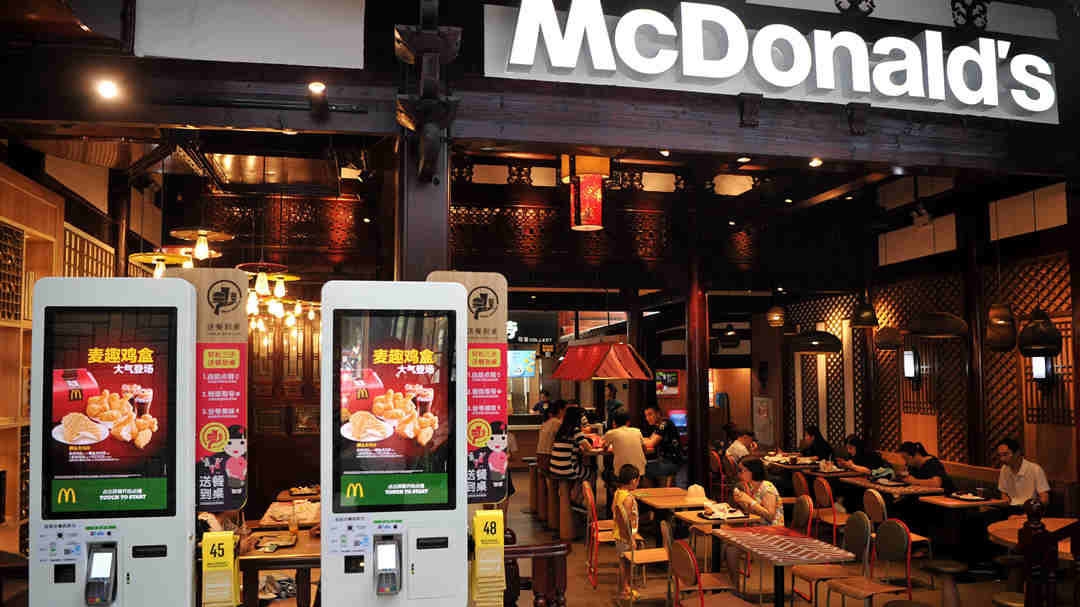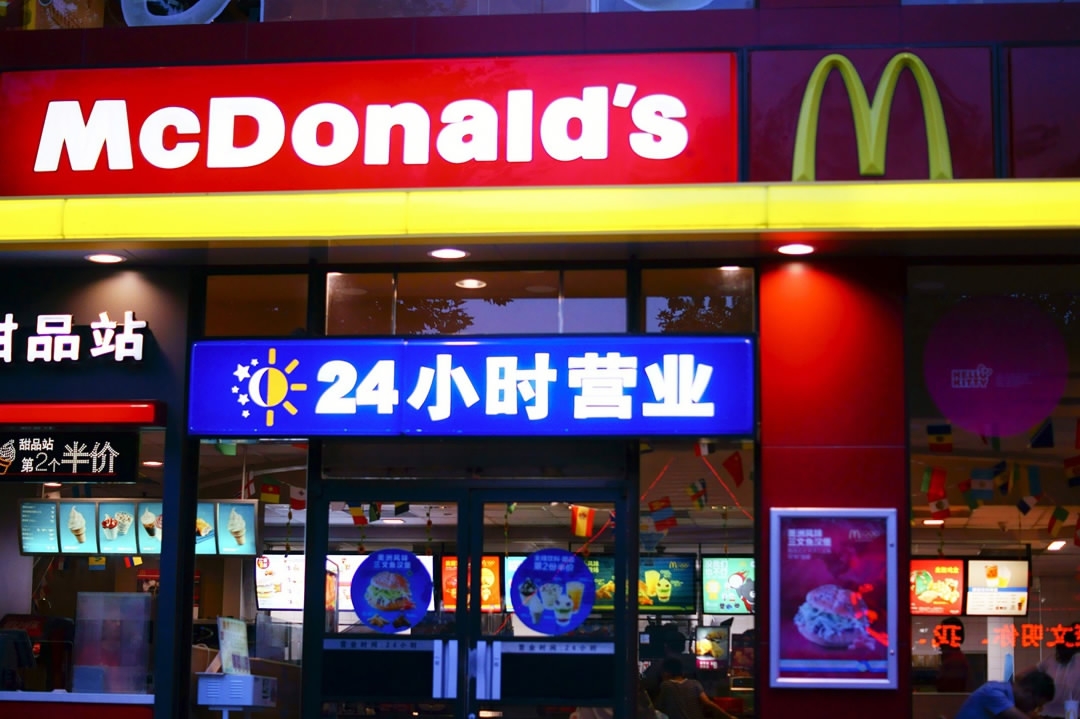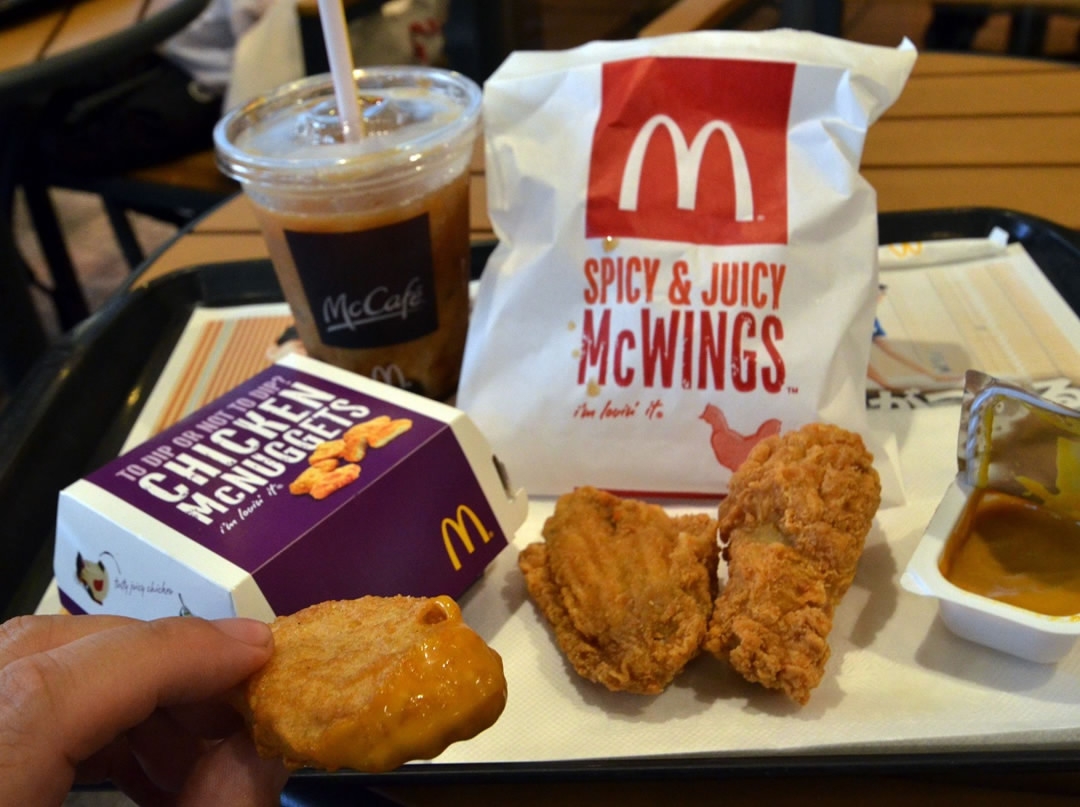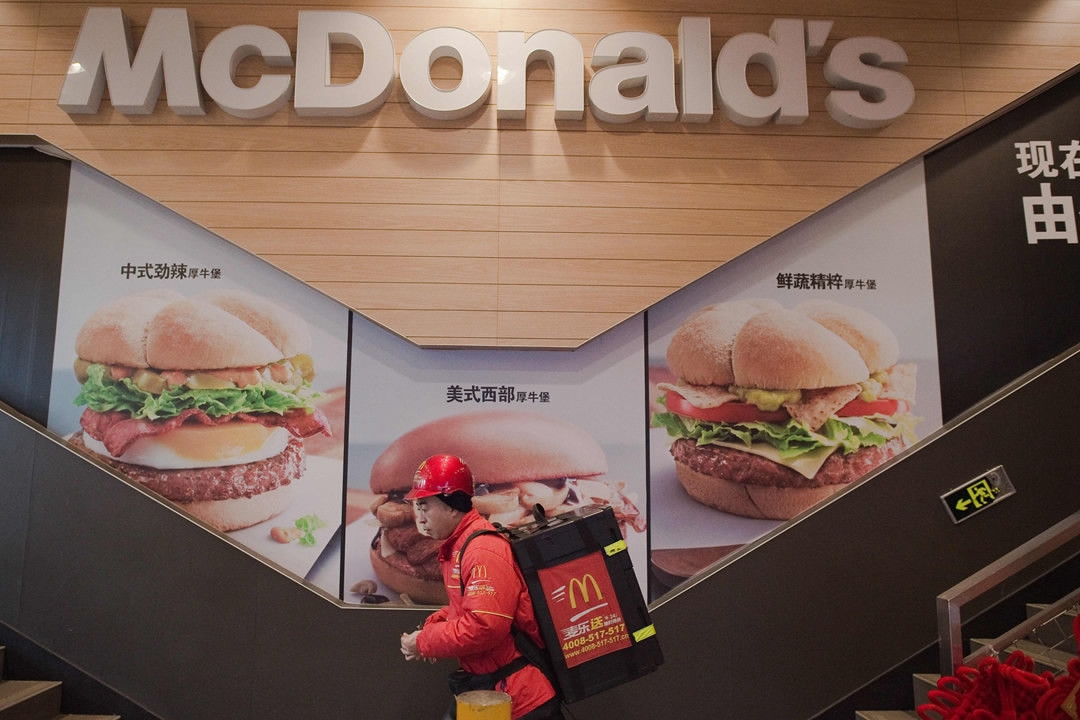
Business
23:07, 24-Aug-2017
McDonald’s justifies China omission from antibiotics cut plan
By CGTN's Yao Nian

China is omitted from a list of countries in which McDonald's is aiming to eliminate the use of high-value human antibiotics in its chickens by January 2018 because of the different laws and agricultural conditions there, the fast-food giant told CGTN on Thursday.
Joining a broader global battle against superbugs, McDonald's announced on Wednesday that it would aim to eliminate from its broiler chicken supply chain the global use of antibiotics deemed by the World Health Organization as being of the highest priority in human medicine.

VCG Photo
VCG Photo
In January 2018, these most important of antibiotics will be gone from the chain's chicken supply in Brazil, Canada, Japan, South Korea, the US and Europe (excluding Colistin).
Though McDonald's said it would apply a “tiered approach”, applying the policy in other countries later, Chinese consumers were angry not to see China included in the first phase.
The company responded in a note sent to CGTN, "McDonald's China upholds the same food security concepts across the globe."
"Take poultry breeding for example, antibiotics use is necessary in treatment [of sick animals], and our suppliers will use drugs under the guidance of veterinarians. Drug categories, usage and dosage strictly comply with relevant Chinese laws and regulations," the company explained.
Is antibiotics use necessary?

VCG Photo
VCG Photo
Zhu Yi, associate professor with China Agricultural University, agreed that "responsible use of antibiotics is necessary". If chicken get sick in the US and Europe, they still have to seek approved antibiotics, Zhu told Chinese media The Paper.
It is difficult to synchronize an antibiotics cut between China and other countries because antibiotics are cheap, easily available and used a lot in China, according to Zhu. China cannot fully stop the use of antibiotics in the short term, since some farming conditions are not up to standard.
However, scientists have warned that the continued use of antibiotics to promote the growth of food animals and prevent their diseases can increase infections caused by antibiotic-resistant superbugs.
Business struggles for McDonald's China

VCG Photo
VCG Photo
To revive growth, McDonald's sold its next 20-year franchise rights in China to the Chinese state-owned CITIC Group and US private equity firm Carlyle on July 31.
After the auction, the fast food giant announced plans to double the number of its stores in the Chinese mainland from 2,500 to 4,500, especially in lower-tier cities, by 2022.
The company said it is targeting double-digit annual sales growth in the Chinese mainland over the next five years.
"China will soon become our largest market outside of the US," Steve Easterbrook, McDonald's chief executive, said in early August.

SITEMAP
Copyright © 2018 CGTN. Beijing ICP prepared NO.16065310-3
Copyright © 2018 CGTN. Beijing ICP prepared NO.16065310-3